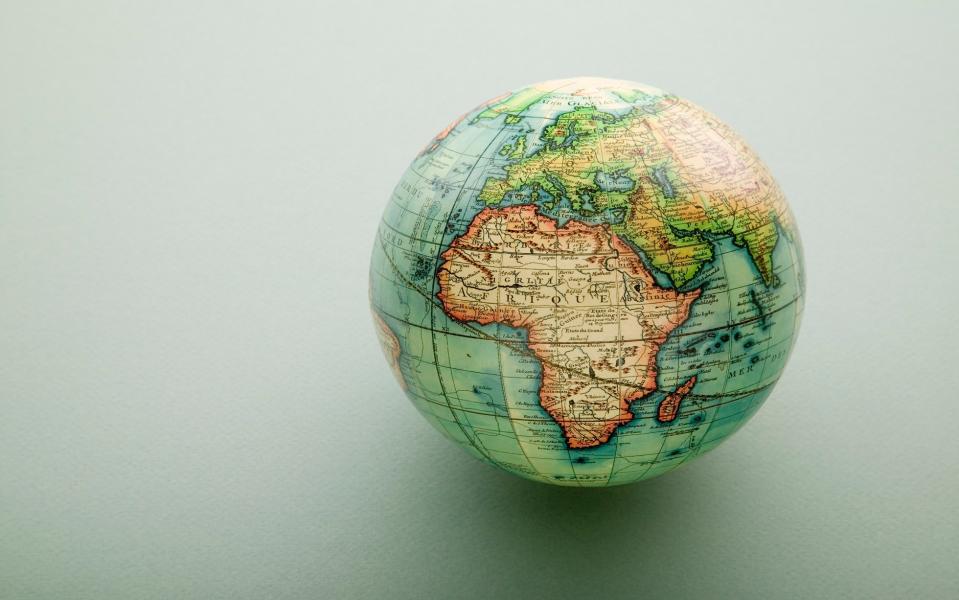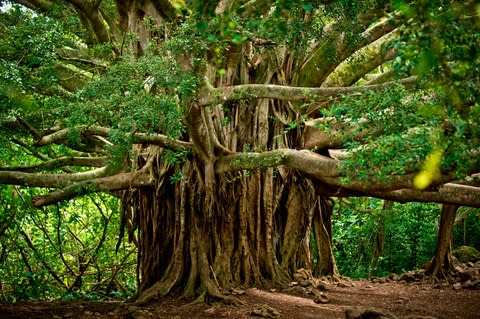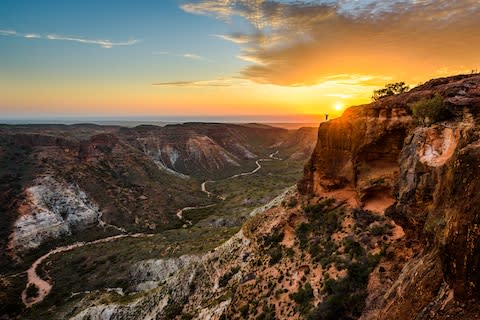Nearly every country on Earth is named after one of these four things

Ever wondered how England got its name? As with countless other countries, it's all down to a tribe of early settlers (in this case the 5th Century Angles).
In fact, almost every country in the world is named after one of four things: 1) a tribe; 2) a feature of the land; 3) a directional description; or 4) an important person. That's according to Quartz, which analysed 195 countries listed in the Oxford Concise Dictionary of World Place-Names.
The name given to the somewhat obscure study of place names itself is toponymy, and here we present a selection of countries in each of the four categories, and how they got their monikers.
Tribe names
England is in good company with the lion’s share (about a third) of the world’s countries named after an early tribe or ethnic group.
FRANCE – Named after the Franks, who conquered the land in the Medieval ages.
VIETNAM – Named after the Viets of the South.
AFGHANISTAN – Translates to "Afghan-land; place of the Afghans”.

THAILAND – Relates to the “tai” people, an ethnic group from the central plains region.
RUSSIA – From the Medieval Latin term “Russi”, which denoted the people of the land.

Important people
It is thought that of all the countries named after powerful or influential people, only one of these was a woman...
SAINT LUCIA – This Caribbean island was named by the French in 1625 after the Catholic Saint Lucy, who was widely worshipped during the Middle Ages.

COLOMBIA – Named after famed explorer Christopher Columbus, who incidentally never even set foot in the country. It was in fact discovered by his companion Alonso de Ojeda in 1499, but was eventually named after Columbus anyway.
PHILIPPINES – Named by Spanish explorer Ruy López de Villalobos, in honor of King Philip II of Spain in 1542.
SAUDI ARABIA – After esteemed warrior and aristocrat Emir Muhammad bin Saud, who is considered the founder of the First Saudi State in 1744.
SEYCHELLES – In 1976, this beautiful chain of islands in the Indian Ocean gained independence from the UK but before that it was controlled by France and was named after French minister of finance Jean Moreau de Sechelles in the 1700s.
EL SAVADOR – This tiny country in Central America takes its name from Jesus and translates to "The Saviour". It was named by Spanish conqueror Pedro de Alvarado in the 1500s.

Land features
Approximately a quarter of the world’s country names derive from an aspect of the land that differentiates them from others.
ICELAND – This moniker translates to "Land of Ice", perhaps for obvious reasons, from the ancient language of Old Norse, and is said to have been named by Norwegian Viking Hrafna-Flóki Vilgerðarson in 856 AD. This ignores Iceland’s plentiful green landscape, however, and many theorise that Iceland was named as such to dissuade potential settlers from invading what would have sounded like a cold, hostile environment.
HAITI – This Caribbean country’s name translates to "mountainous land" in its indigenous Taíno language. It was colonised by Spain in 1492 and originally named “La Española”, but was later renamed “Haiti” in 1804 by former slave and revolutionary Jean-Jacques Dessalines, who declared himself emperor and took back the land.
BARBADOS – This name translates to ‘the bearded’ in Portuguese, which is thought to be due to the long hanging roots of the fig trees that were noticed and marvelled at by colonizers in the late 16th Century.

UKRAINE – Ukraine was labelled as such during the 12th Century and translates to “near the border” in Old Slavic. Essentially it was used to define an area of territory within what was then the East Slavic state of Kievan Rus’.
Location
Making up the fourth and smallest group, 25 countries are thought to be named after a directional description.
AUSTRALIA – First coined by the Ancient Greeks, Australia translates to “Unknown Southern Land”, but was officially declared by this name in the early 1800s by English cartographer Matthew Flinders.

NORWAY – Conversely, this country traces its name to the Old English term for “northern way”, first mentioned in 880 by the Anglo-Saxons.
JAPAN – Nippon, which is the name commonly used by Japanese natives, means “land of the rising sun”, referring to its geographical location of being east of China.

